#morals in books
Explore tagged Tumblr posts
Text
You can separate the art from the artist until their harmful politics and ideals begin leaking into their works.
A lot of times, artists and writers WILL leave their ideals in their works. That's not my point here. My point is that you can separate the art from the artist until they start weaponizing their work with their harmful views.
For example, we'll compare Dr. Seuss to JK Rowling.
On one side, we have a man who deeply cared about issues that affected his daily life. He was a leftist, a war veteran, a husband, and an author.
Dr. Seuss
Illustrated political cartoons during WWII, specifically supporting Roosevelt
Wrote Horton Hears a Who ad an allegory for the American post-war occupation of Japan
Sued the pro-life movement for using Horton's quote, "how small" on their propaganda stationary
His view on kids, "You have 'em, I'll entertain 'em"
Purposefully wrote the beginnings of his stories WITHOUT a moral in mind, quoting "Kids can see morals a mile away"
Continuing on that point, he wanted to view his stories as subversive rather than making an obvious remark within his works
A lot of his books have anti-consumerism, (the sneetches), racial equality (the butter battle book), arms race (yertle the turtle), and economic materialism (how the grinch stole christmas) allegories that fly over children's heads in favor of purposefully written morals that are intended for his younger audiences.
Point: Dr. Seuss never weaponized his writing. He never outright talked about things in his books to kids that were deemed inappropriate. In fact, a lot of his works were colorful and imaginative and weren't at all trying to teach specific moral issues. (What Was I Scared Of? Is a personal favorite of mine that teaches you how to fave your fears)
JK Rowling, on the other hand, decided to unapologetically use harmful stereotypes and politics in her works.
JK Rowling:
Admitted multiple times during interviews that goblins are a Jewish allegory
The only Irish character in her book is a harmful racial stereotype in that Seamus Finnigan not only has a stereotypical Irish name, he regularly explodes.
The only Jewish character in her book is Anthony Goldstein. Which is another rather harmful stereotype.
The only Asian character's name is Cho Chang.
The only Indian characters' names are Padma and Pervati Patil.
Hermione's protest movement Society for the Promotion of Elfish Welfare was named that way on purpose so other characters could call it SPEW and make fun of her. Insisting the house elves were better off working in slavery and they were happier that way, using a fired house elf (Winky) ad a harmful narrative device to try and defend the pro-slavery mindset within the Wizarding world
Uncomfortable Nazi allegories with Voldemort being a Magic Hitler
Attempting equality after her books were already published in an attempt to paint herself in a better light (tweeting that Dumbledore is queer, Hermione is black, etc.)
TERF behavior patterns that ended up in her publishing several radical publications explaining why trans people should die
So. There's a line to be drawn here.
Dr. Seuss illustrated a lot of commentaries on socio-economic issues in the WWII Era. Prominent and relevant issues. But he also taught important morals to kids in his writing while being subversive and rather imaginative in his books. They were obviously children's books and never swayed from children's books.
But there's something uncomfortably political about Harry Potter and that's why I can't separate it from JKR.
21 notes
·
View notes
Text
"i wish i could exfoliate my brain" you can. by reading things that challenge you.
#🐉#intellectually ethically morally emotionally etc.#once you find a decent book or essay that hits just right you will feel the dead layers flaking off
19K notes
·
View notes
Text
interesting how fords been surrounded by triangles his entire life. looks like ford and bill were always doomed to meet each other
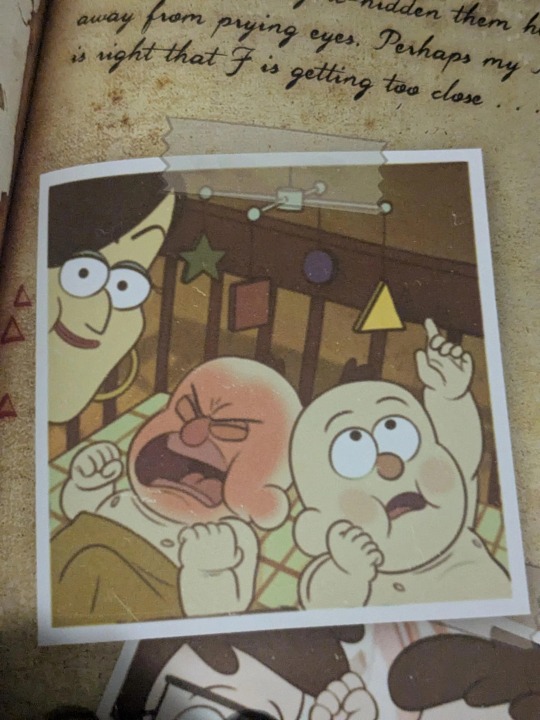
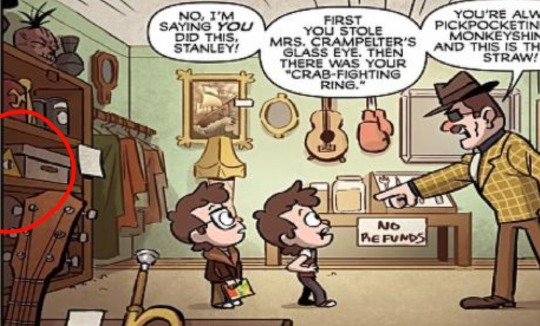
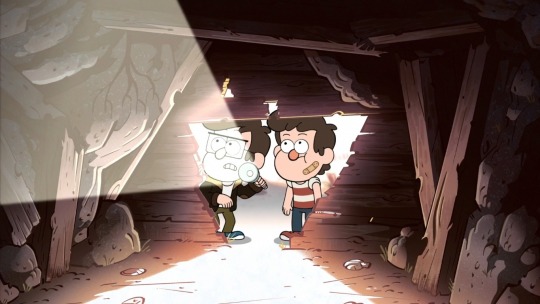
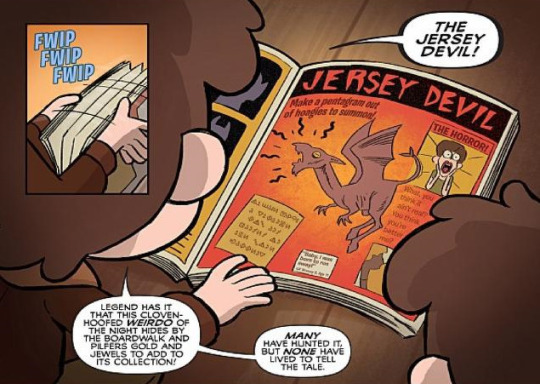
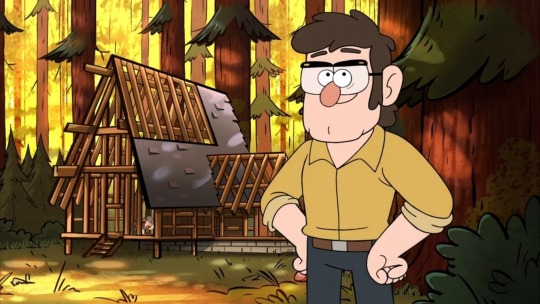
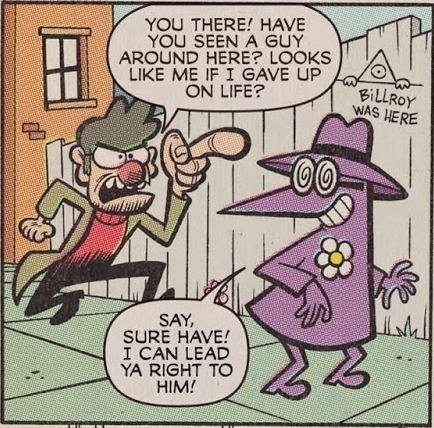
ford did seem to think that he is destined to be in gravity falls, destined to be part of greater things, and bill also thought he was "destined for so much more"

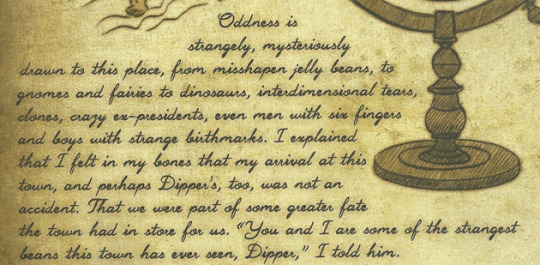
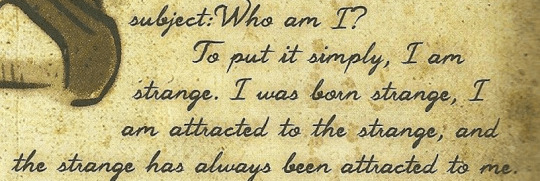
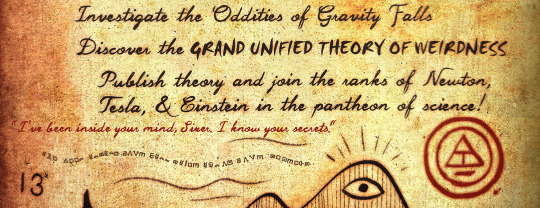
to quote on alex, "that's ford's great flaw, is arrogance. is he believes that there's special people, and everyone else. that human attachments are actually weaknesses. and the song and dance that he’s giving dipper right now, is the song and dance that he gave mcgucket, back when they were younger… ‘you and me are different, we’re better than everyone else. we have a path that no one else can understand, and only us can do this.’"
i think at some point bill really thought ford was the one that UNDERSTOOD him (well, ford did think "why did rudolph not simply kill the other reindeer? he shouldve burned his workshop to the ground"). some of his henchmaniacs didnt seem to actually like bill at all
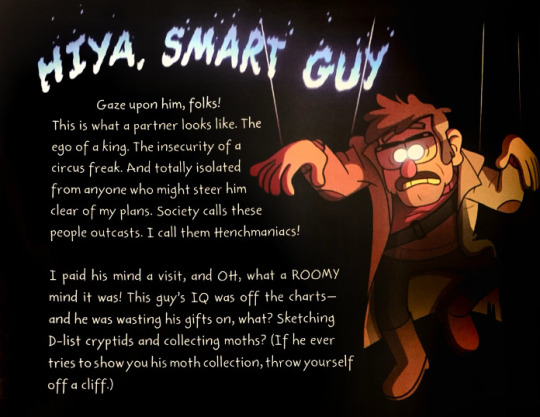
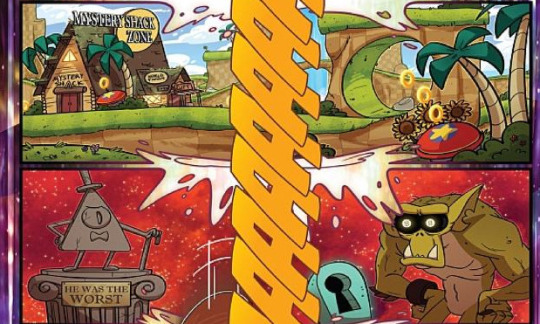
quick edit for something ive found:
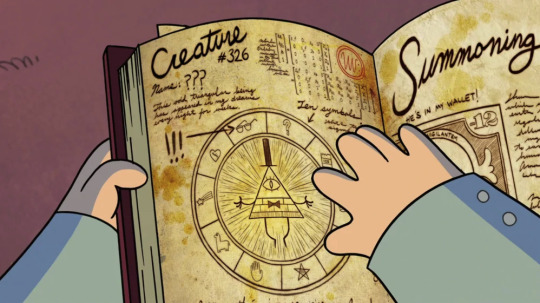
this is from "dreamscaperers", and apparently ford had been dreaming about the cipher wheel for weeks before he even found the cave. enough times that he was even able to perfectly draw the wheel on the journal. bill didnt even know about ford yet.
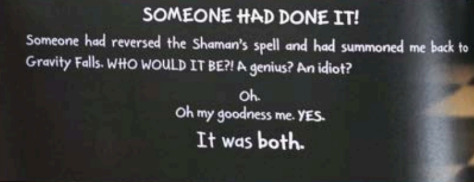
#gravity falls#the book of bill#billford#stanford pines#bill cipher#funny how one of the reasons bill gets obsessed with ford is due to a lot of their similarities#yet hates stan because of their similarities#bill didnt count on fords moral code being different from his#he probably thought 'if i liberated my dimension and left my family behind then why wouldnt ford?#both of our families just ended up dragging us down'#he still misses them and calls himself a monster for destroying his dimension but yk#hell keep lying to himself until he believes it#ford pines
5K notes
·
View notes
Text
Am I the only one who feels spoiled by reading Tamora Pierce as a child and then never finding something that hit quite the same? She really had it all. One of the only authors I’ve seen do multiple generations well (because the previous generations aren’t just offed or all of their progress backtracked). Ambient vs scholarly magic systems is still one of the coolest magic systems to this day. The friendships are perfect and just the right amount of romance to make it fun. Redemption stories that fit the characters and don’t make them perfect angels even as they grow for the better. Tragic regression stories that haunt the characters (and me).
#Tamora Pierce#asking my mom if I could buy the Alana box set with a birthday gift card even though it didn’t cover the whole price#and then proceeding to read the first two books within two dayy#core memory of childhood#and a special shout out to Jonathan of Conte and George Cooper shaping my definition of morally gray forever
2K notes
·
View notes
Text
I cannot emphasise enough that I love Billford for the message it delivers.
The ship itself is toxic yes, Bill was manipulative and awful and ultimately using Ford. For fictional angst, that’s great. But it’s more than that.
Because Ford gets out.
Ford gathers his courage and cuts Bill out as best he can. He reaches out and it’s not easy but he gets free of Bill. He gets his family back, he gets his life back, he gets to move forward. There are bumps in the road ad setbacks but ultimately he wins. He gets to have an after.
And it shows just how scary that can be. The paranoia and the setbacks and the trust issues. The way people in those situations lash out and close themselves off and the way it takes time to recover and move forwards.
It’s a powerful message, and an important one, and that’s why I love the ship.
#billford#I also love the angst tbf#gravity falls#book of bill#gravity falls fandom#bill cipher#stanford pines#ford pines#toxic old man yaoi#important morals in kids shows I guess#bill cypher#bill x ford
2K notes
·
View notes
Text

Texts From Superheroes
Facebook | Threads | Patreon | Instagram
#Comics#Marvel#Spider-Man#Miles Morales#Peter Parker#Spiderman#Spider Man#Marvel Comics#TFSH#Texts From Superheroes#Text Books from superheroes
1K notes
·
View notes
Text
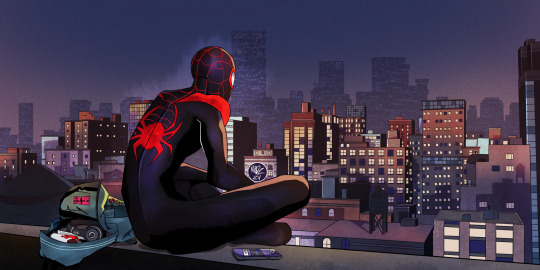
This is the biggest landscape piece I’ve ever done, I wanted to see if I could draw a more detailed cityscape🕸️
#art#artists on tumblr#digital art#drawing#digital artist#digital illustration#small artist#fanart#marvel illustration#marvel art#marvel#miles molares#spiderman miles morales#spidey fanart#spiderman into the spiderverse#spiderverse fanart#beyond the spiderverse#across the spiderverse#fanart illustration#illustration art#illustrator#illustration#marvel fanart#comic fanart#comic artist#spiderman comics#comic#comic art#comic books#comics
2K notes
·
View notes
Text
Prompt 271
“Grandmother is visiting,” Damian suddenly said with no warning and with his usual not-quite demanding tone.
“Who?” Tim wasn’t the only one to startle, seeing as Bruce had practically froze, a downturn to his lips in a silent show of confusion.
Damian scowled. “Are you deaf Drake? Grandmother is coming to Gotham to, quote, make sure I am being properly cared for.” None of them had known that Ras was with anyone actually. At least Tim was pretty sure that would have been in the files.
“Oh?” Dick didn’t quite crouch to Damian’s height but it was a near thing. “She-” “He,” Damian corrected, interrupting him. They all exchanged a glance before Dick continued.
“Is he coming to the Manor or…”
Damian scoffed again, a tiny bit of a flush against his face. “No, Grandmother will most likely be staying with Akhi-”
Now wait one moment-
“YOU HAVE ANOTHER BROTHER?!”
#DCxDP#DPxDC#Prompts#Deadly Decisions#Danny & Ras are the homoerotic rivals that no one knows if they’re flirting or attempting a murder#It’s actually both they’re just also both Immortal#Danny to Jason: You can become a crime lord if you finish college- you’ve said you wanted to get a degree this is ur chance#Dusan (nodding): Mother has made all of us finish at least our basic education nephew#Why yes this does mean that RH has just made the heads in a duffel bag debut & the bats have no clue it’s Jason#Normally Danny wanders the universe but RAS (affectionately derogatory) HOW DARE U TRY TO HIDE THE GRANDCHILDREN#Morally Gray Danny#He’s well over 300 and that has an affect lol#Also has some fun fae vibes thx to his ghost half & human half finally balancing out#Let Jason & Damian be brothers#Tiny Damian: Akhi look I found a frog :>#Jason (newly not brain damaged & has no clue who this small child is): …. That’s great#Tiny Damian: *GASP* Akhi you can talk now :D#Fuck it- all the Al Ghuls deserve fangs from ecto contamination#Is Danny actually Dusan & Talia’s mother? No one knows and no one wants to ask the probably immortal fae being okay#Danny brought Damian a ghost hound puppy & Jason an original signed Pride & Prejudice book#How come Bruce wasn’t aware of Danyal? Talia forgot to inform him that the mother she was speaking of is in fact still alive#He disappears for a decade sometimes longer she was using past terms how was he supposed to know
3K notes
·
View notes
Text
It's interesting (if often frustrating) to see the renewed Orc Discourse after the last few episodes of ROP. I've seen arguments that orcs have to be personifications of evil rather than people as such or else the ethics of our heroes' approach to them becomes much more fraught. Tolkien's work, as written, seems an odd choice to me for not wrangling with difficult questions, and of course, more diehard fans are going to immediately bring up Shagrat and Gorbag.
If you haven't read LOTR recently, Shagrat and Gorbag are two orcs who briefly have a conversation about how they're being screwed over by Sauron but have no other real options, about their opinions of mistakes that have been made, that they think Sauron himself has made one, but it's not safe to discuss because Sauron has spies in their own ranks. They reminisce about better times when they had more freedom and fantasize about a future when they can go elsewhere and set up a small-scale banditry operation rather than being involved in this huge-scale war. Eventually, however, they end up turning on each other.
Basically any time that someone brings up the "humanity" of this conversation, someone else will point out that they're still bad people. They're not at all guilty about what they're part of. They just resent the dangers to themselves, the pressure from above, failures of competence, the surveillance they're under, and their lack of realistic alternative options. The dream of another life mentioned in the conversation is still one of preying on innocent people, just on a much smaller and more immediate scale, etc.
I think this misses the reason it keeps getting brought up, though. The point is not that Shagrat and Gorbag are good people. The point is that they are people.
There's something very normal and recognizable about their resentment of their superiors, their fears of reprisal and betrayal that ultimately are realized, their dislike of this kind of industrial war machine that erases their individual work and contributions, the tinge of wistfulness in their hope of escape into a different kind of life. Their dialect is deliberately "common"—and there's a lot more to say about that and the fact that it's another commoner, Sam, who outwits them—but one of the main effects is to make them sound familiar and ordinary. And it's interesting that one of the points they specifically raise is that they're not going to get better treatment from "the good guys" so they can't defect, either.
This is self-interested, yes, but it's not the self-interest of some mystical being or spirit or whatnot, but of people.
Tolkien's later remarks tend to back this up. He said that female orcs do exist, but are rarely seen in the story because the characters only interact with the all-male warrior class of orcs. Whatever female orcs "do," it isn't going to war. Maybe they do a lot of the agricultural work that is apparently happening in distant parts of Mordor, maybe they are chiefly responsible for young orcs, maybe both and/or something else, we don't know. But we know they're out there and we know that they reproduce sexually and we know that they're not part of the orcish warrior class.
Regardless of all the problems with this, the idea that orcs have a gender-restricted warrior class at all and we're just not seeing any of their other classes because of where the story is set doesn't sound like automatons of evil. It sounds like an actual culture of people that we only see along the fringes.
And this whole matter of "but if they're people, we have to think about ethics, so they can't be people" is a weird circular argument that cannot account for what's in LOTR or for much of what Tolkien said afterwards. Yes, he struggled with The Problem of Orcs and how to reconcile it with his world building and his ethical system, but "maybe they're not people" is ultimately not a workable solution as far as LOTR goes and can't even account for much of the later evolution of his ideas, including explicit statements in his letters.
And in the end, the real response that comes to mind to that circular argument is "maybe you should think about ethics more."
#i had a whole 'nother tangent that i split off into a separate draft#but i've been thinking about why the 'but shagrat and gorbag are still BAD people' thing seems so inane and missing the point#but yeah. i feel like people desperately want to find some justification in tolkien (and elsewhere) for the idea#that doing something wrong to a person will become doing something right if you can find someone who 'deserves it'#and that literally anything can be justified if someone has been defined as a valid target (i.e. less than a person)#(you see this a lot in the whole twitter main character of the day thing - the idea that the problem is directing the firehose#against the wrong person by mistake rather than the firehose itself)#but it's super weird for a novel built on a metaphor about how using the tools of evil for a good end or against existential enemies#is fundamentally corrupting and only further props up what it's meant to oppose#and i mean... the character most like tolkien literally says he could not morally justify lying to an orc and rejects the ring#it's not exactly a deeply buried theme of the book#anghraine babbles#long post#anghraine rants#legendarium fanwank#legendarium blogging#shagrat#gorbag#tv: lotr#jrr tolkien
739 notes
·
View notes
Text

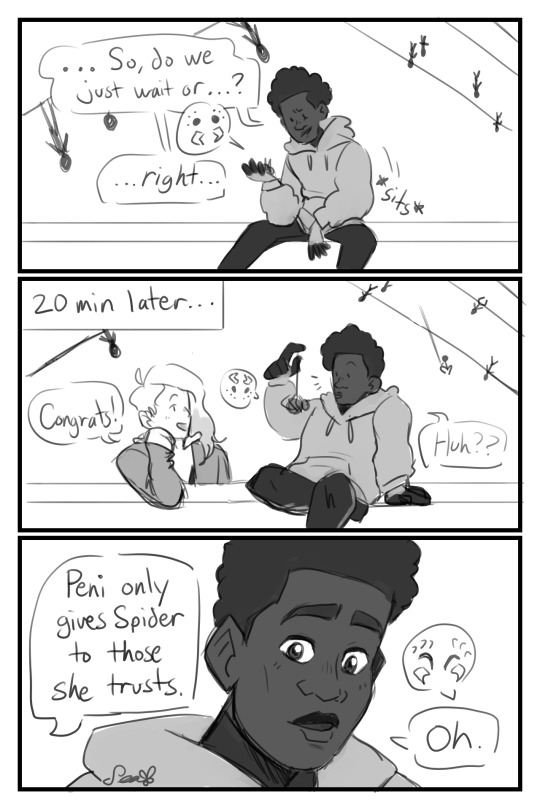

Trust (based on an ask I answered)
#spiderverse#peni parker#SP//dr#miles morales#not tagging gwen this ain't about her lol#atsv#across the spiderverse#my art#first time drawing Miles!!#based Spider's design off the comics cuz I couldn't find movie ref til AFTER I finished drawing em lol#waiting eagerly for my art books to arrive so I have better refs for all the Spideys#also if anyone tags this as ship I'll hunt them down on all fours like Miguel does to Miles (jk I'll just block)
6K notes
·
View notes
Text
Villains vs. Antagonists (Guide For Writers)
Hey there, fellow writers and wonderful members of the writeblr community! 📚✍️ It's Rin here and...
Today, we're diving into a topic that's close to many writers' hearts: villains and antagonists. These characters often steal the show, driving our plots forward and giving our heroes something to push against. But here's the thing – while these terms are often used interchangeably, they're not quite the same. So, let's unpack this, shall we?
First things first, let's break down the difference between a villain and an antagonist. It's a distinction that can really elevate your storytelling game!
An antagonist is simply a character (or force) that opposes your protagonist. They're the obstacle, the challenge, the thing standing in the way of your main character achieving their goal. Here's the kicker: an antagonist doesn't have to be evil. They could be a rival love interest, a stern parent, or even nature itself.
A villain, on the other hand, is a specific type of antagonist. They're the bad guy, the evildoer, the character with malicious intent. All villains are antagonists, but not all antagonists are villains. Mind-blowing, right?
Let's look at some examples to make this clearer:
In "Romeo and Juliet," the feuding families are antagonists, but they're not villains. They oppose the protagonists' desire to be together, but they're not evil.
In "Harry Potter," Voldemort is both an antagonist and a villain. He opposes Harry (making him an antagonist) and he's also evil (making him a villain).
In "Cast Away," the island and the challenges of survival are the antagonists. There's no villain in sight!
Now that we've got that sorted, let's dive deeper into how to create these characters and use them effectively in your writing.
Creating Antagonists:
Define their opposition: What specifically does your antagonist do to oppose your protagonist? This could be physical, emotional, or ideological opposition.
Give them a reason: Why are they standing in your protagonist's way? Even if it's not justified, there should be a reason that makes sense to the antagonist.
Make them strong: Your antagonist should be a worthy opponent. They need to pose a real challenge to your protagonist to keep things interesting.
Consider their perspective: Remember, your antagonist is the hero of their own story. Try writing a scene from their point of view to understand them better.
Create contrast: Your antagonist should in some way contrast with your protagonist. This could be in values, methods, or personality.
Creating Villains:
Establish their evil: What makes your villain "bad"? Is it their actions, their beliefs, or both?
Develop their backstory: How did they become evil? A compelling villain often has a tragic or twisted history.
Give them dimensions: Pure evil can be boring. Give your villain some complexity – maybe they love their cat or have a soft spot for classical music.
Create a strong motivation: What drives your villain? Greed? Revenge? A twisted sense of justice? The stronger and more relatable the motivation, the more compelling your villain will be.
Make them smart: Your villain should be clever enough to pose a real threat. They should be able to anticipate and counter your protagonist's moves.
Now, let's talk about how to use these characters in different genres. Because let's face it, a villain in a romance novel is going to look very different from one in a fantasy epic!
In Romance: Antagonists in romance are often rivals for the affection of the love interest, or perhaps societal norms or family expectations standing in the way of true love. Villains are less common, but when they appear, they might be abusive exes or manipulative friends trying to sabotage the relationship.
Tip: In romance, make sure your antagonist's motivations are clear and relatable. We should understand why they're opposing the main relationship, even if we don't agree with their methods.
In Fantasy: Fantasy is ripe for both antagonists and villains. You might have a Dark Lord seeking to conquer the world (classic villain) or a rival magic user competing for the same goal as your protagonist (antagonist).
Tip: In fantasy, world-building is key. Make sure your antagonist or villain fits logically into the world you've created. Their powers, motivations, and methods should all make sense within the rules of your fantasy realm.
In Mystery/Thriller: In these genres, your antagonist is often the perpetrator of the crime your protagonist is trying to solve. They might not be evil (maybe they committed a crime of passion), or they could be a full-fledged villain if their crimes are particularly heinous.
Tip: In mysteries, your antagonist needs to be clever enough to challenge your detective protagonist. Leave subtle clues about their identity or motives, but make sure they're smart enough to almost get away with it.
In Literary Fiction: Here, antagonists are often more abstract. They might be societal expectations, personal flaws, or even time itself. Villains in the traditional sense are less common, but morally grey characters who oppose the protagonist are frequent.
Tip: In literary fiction, focus on the nuances of your antagonist. They should be as complex and flawed as your protagonist, with their own rich inner life.
In Sci-Fi: Science fiction offers a wide range of possibilities for antagonists and villains. You might have alien invaders, oppressive governments, or even well-meaning scientists whose creations have gone awry.
Tip: In sci-fi, make sure your antagonist or villain is consistent with the technological and social aspects of your imagined world. Their methods and motivations should make sense within the context of your sci-fi setting.
Now, let's dive into some tips to make your antagonists and villains the best they can be in your novel:
Make them believable: Whether you're writing a mustache-twirling villain or a morally grey antagonist, their actions and motivations should make sense within the context of your story and their character.
Give them a personal connection to the protagonist: The conflict becomes much more engaging when it's personal. Maybe your antagonist and protagonist used to be friends, or they're fighting over the same goal.
Show their impact: Don't just tell us your antagonist is a threat – show us the consequences of their actions. Let us see how they affect your protagonist and the world of your story.
Give them wins: Your antagonist or villain should have some successes along the way. If they're always failing, they won't seem like a credible threat.
Humanize them: Even if you're writing a truly evil villain, give them some humanizing traits. Maybe they have a pet they dote on, or a tragic backstory that explains (but doesn't excuse) their actions.
Make them adaptable: A good antagonist doesn't stick to one plan. When the protagonist foils them, they should be able to come up with new strategies.
Give them their own character arc: Your antagonist or villain should grow and change throughout the story, just like your protagonist does.
Use them to highlight your protagonist's strengths and weaknesses: Your antagonist should challenge your protagonist in ways that force them to grow and change.
Consider their presentation: How do other characters react to your antagonist? How do they present themselves to the world versus who they really are?
Don't forget about henchmen: If you're writing a villain, consider giving them some underlings. This can add depth to their character and provide more challenges for your protagonist.
Remember, whether you're crafting a dastardly villain or a complex antagonist, these characters are crucial to your story. They're the ones who push your protagonist to grow, who raise the stakes, and who often drive the plot forward.
But here's a gentle reminder: while it's important to make your antagonists and villains compelling, be mindful of the impact your writing might have. If you're dealing with heavy themes or traumatic events, handle them with care and sensitivity.
Now, I know we've covered a lot of ground here, and you might be feeling a bit overwhelmed. That's okay! Writing complex characters is a skill that develops over time. Don't be afraid to experiment, to try different approaches, and to revise and refine your antagonists and villains as you go.
One exercise I find helpful is to write a short story from your antagonist's or villain's point of view. This can help you understand their motivations better and ensure they feel like real, three-dimensional characters.
Another tip: watch movies or read books in your genre and pay special attention to how they handle antagonists and villains. What works well? What doesn't? How can you apply these lessons to your own writing?
Remember, there's no one "right" way to create these characters. What matters is that they serve your story and engage your readers. Trust your instincts, and don't be afraid to push boundaries or subvert expectations.
As you work on your antagonists and villains, keep in mind that they're not just there to make life difficult for your protagonist. They're an integral part of your story's ecosystem. They shape the plot, influence character development, and often reflect themes or ideas you're exploring in your work.
And remember, writing is a journey. Your first draft of an antagonist or villain might not be perfect, and that's okay. The beauty of writing is in the revision, in the gradual sculpting of characters until they leap off the page.
Lastly, don't forget to have fun with it! Creating antagonists and villains can be some of the most enjoyable parts of writing. Let your imagination run wild, explore the darker sides of human nature, and see where your characters take you.
I hope this deep dive into antagonists and villains has been helpful and inspiring. Remember, you've got this! Your unique voice and perspective will bring these characters to life in ways no one else can.
Happy writing! 📝💖 - Rin. T
Before you go, why not join us at The Write Right Society? We're a supportive Tumblr community where writers lift each other up. Whether you're a newbie or a pro, we'd love to have you! Share your work, get feedback, and connect with fellow wordsmiths, writers and aspiring authors.
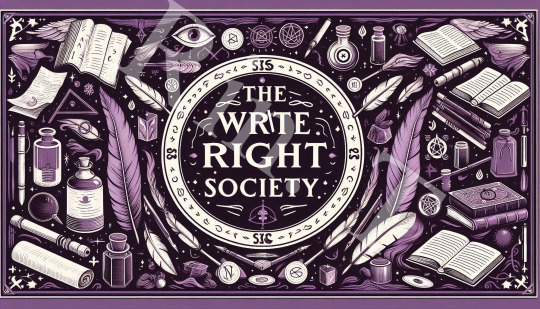
#writeblr#writing#writing tips#writers block#creative writing#on writing#writers and poets#how to write#writers on tumblr#thewriteadviceforwriters#amwriting#writingtips#writing tips and tricks#writing craft#antagonist#morally grey villain#tropes#characters#heroes and villains#writing advice#romance writing#writing a book#writing blog#novel writing#writing community#writing guide#writing ideas#writing inspiration#writing prompts#writing reference
782 notes
·
View notes
Text
There's this way of doing female-ness in Christianity that I call "pastel flower journal Christianity." I've got nothing against pastel flower journals per se, but for some reason people believe it's the end all and be all of female spirituality, and I think it's a real disservice towards young Christian women.
One of these days I'd like to start a prayer-and-reading group or something for young women, but there would be no floral themes or over-focus on how "God thinks you're beautiful even if the world doesn't" (a true statement, but it's wayyyyy too often the focus in women's spiritual reading). Instead we would be reading:
Seneca's Letters from a Stoic
Frankl's Man's Search for Meaning
Sheed's A Map of Life
Portions of Pieper's book on leisure
Kreeft's Three Philosophies of Life
Guardini's The Lord (or something similar)
Therese's Story of a Soul
and some select portions of the Nicomachean Ethics.
(Also they're all getting the porn talk. I don't know why we give the porn talk to young men but not young women. There's this idea that women don't use porn and they only need the talk about "guarding their heart." Bullshit. There's porn on the YA shelves of Barnes and Nobles and before that there were bodice rippers. Young women need the porn talk too.)
Every young woman needs to be getting a basic grounding in virtue ethics, logic, natural law, scholastic philosophy and Biblical hermeneutics if they're going to get by in today's spiritual landscape. Enough faffery and emotionalism in young women's spiritual education! Give them real food to chew on, not pasty sentimentalism!
#Christian femininity#Christian women#Christian#Christianity#Catholicism#Catholic women#Catholic femininity#Catholic feminism#Catholic#I'm sure there should be something by Stein on this list but I haven't read her stuff yet#Anyway if I could shove one book into the hands of every young woman on this site#it would be either Letters from a Stoic or Man's Search for Meaning.#I think a lot of women on this site could benefit from those two books alone.#Much of the way we treat women's sense of spirituality and ethics is trusting them to just blindly feel their way to the right answer#While we give young men clear-cut instructions and reasoning.#It's bullshit. And it's actively harmful. I would never say feelings are useless#but without a well-formed intellect and conscience they're just not going to carry you as far as you need to go on their own.#I had the value of a good moral and philosophical education because of where I went to school—same as the boys in my class.#And it's spared me so much grief. People put the tools in my hands to make smart decisions and empowered me to seek the good.#All young women deserve the same.
1K notes
·
View notes
Text

And I bet she was just fine lol. Lots of us read wicked when we were young and were surprised by the maturity of the content. It’s actually good for kids to grapple with mature themes and books are the best type of media for that
447 notes
·
View notes
Text
Writing Tips - Character Tone VS Narrative Tone
Sometimes characters will do things that they believe are good or bad, but the narrative tone tells you otherwise. It can be hard for some people to separate the character’s feelings and actions with what the writer is personally agrees with, so let’s look into how we can make that happen - which also works as a media literacy guide of what to look for when theorising - and only theorising - if a writer does or doesn’t agree with a character;
1. Tonal dissonance. If a character’s mood doesn’t pass the scene’s vibe check, chances are that the character is about to do something the narrative isn’t framing as a good thing. Say Character A is telling Character B a secret they learned from Character C. B’s response might be to be confused or concerned about the situation and ask why A would tell them. Mixing in other bad vibes, such as the weather or setting or lighting of the scene, can additionally make the audience question whether the action was right - and bonus points if they also have the offending character acting poorly in other ways or getting called out for previous wrongdoings in the same scene
2. Karma’s a writer. Actions have consequences both in and out of your story, and using them to reward or punish choices your characters make can indicate whether or not they were the right thing to do. Expand on that through character interactions if you want more nuance
3. Hide away. A character hiding their actions for whatever reason can indicate that, even subconsciously, they’re aware that it wasn’t something others would approve of. Make them sweat, have them struggle to keep it secret. Let it lead to more wrong moves in future to cover up for the original issue, such as one lie covering for another lie. Let it become more trouble than it’s worth until they have to accept that they messed up, even if a bit of stress was the only karma they get for it in the end
4. Pick a theme. Between overarching themes and individual character themes, you can potentially come up with some pretty good long term lessons; if the character acts against the themes and the lesson they’re going to amount to, punish them for straying in a way that’s appropriate and proportional to the act, then work it into some sort of lesson for the character to learn. For example, if the theme is nature vs nurture and you want the lesson to be being true to yourself rather than what others make you into, a character acting on nurtured traits rather than natural traits might be punished through pressures to conform and the act getting amped up as further conflicts between the two sides of themselves present
5. Recruit a mouthpiece. Which character would be the most likely to call out the offending party’s BS? See if you can come to a scenario where they’d do so - albeit making sure it all stays natural and in-character. Maybe they go about it in a way that doesn’t even hit the mark, but at least it’s been said so your audience has had it addressed. Remember; don’t just insert X random character and have them be uncharacteristically analytical, have it be someone who would already do that and word it in a way that fits their character voice. Above all the interaction needs to feel natural rather than forced
#narrative#narrative tone#character tone#writing morals#writing#writers#writeblr#bookblr#book#writers on tumblr#writerscommunity#writers of tumblr#writer#creative writing#writing tips and tricks#writing is hard#writing advice#writing tricks#writing tips
660 notes
·
View notes
Text
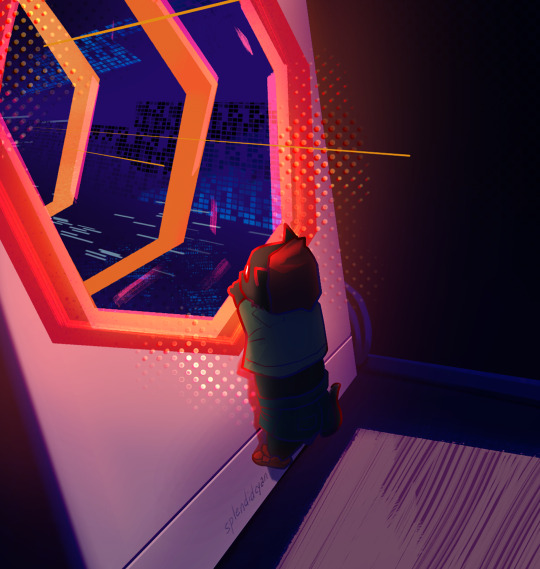
MEOWS MORALES !!!!!!!!!!!!!!!!!!!

#my art#miles morales#meows morales#across the spiderverse#across the spider verse#cat#kitten#redraw#spider ham#spider man#spiderman#clip studio paint#YEEHAW I LOVED THIS MOVIE excited for the art book to come home for me to cry over
6K notes
·
View notes
Text
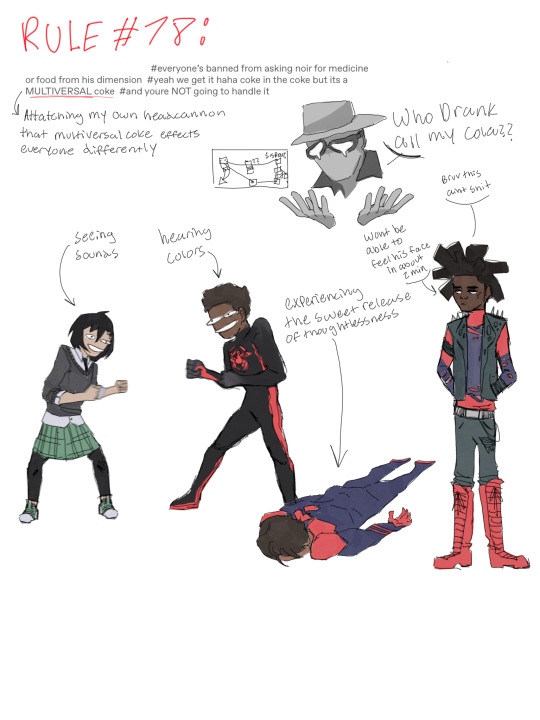
@fandomunsexyman THANK YOU FOR YOUR GLORIOUS IDEAS THEY HAVE INSPIRED ME TO DRAW SPIDERMAN STUFF AGAIN
#there were more beautiful tags there…ough beauty and joy on planet earth#I shall finally draw more spiderman stuff#spider HQ rule book#my art#sketch#spiderman#peni parker#miles morales#hobie brown#miguel o'hara#spiderman noir#atsv#across the spiderverse
4K notes
·
View notes